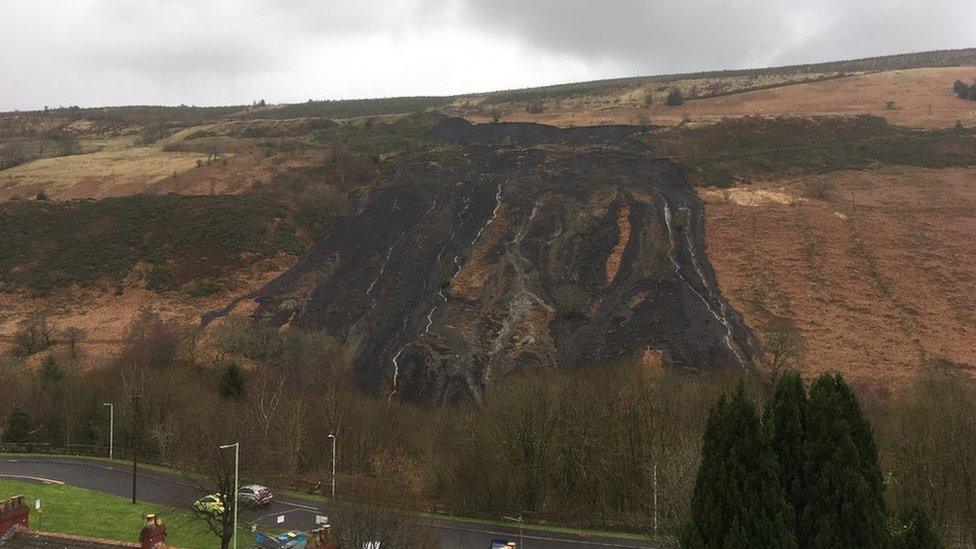Coal tip repairs threaten rare wildlife, ecologists warn
- Published
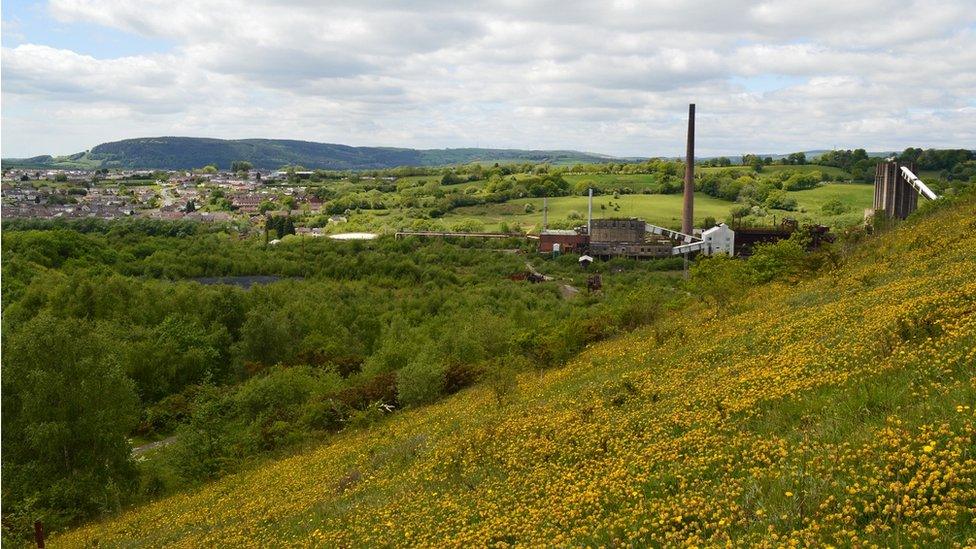
There are almost 2,500 disused coal tips across Wales, like Cwm tip, near Beddau, Rhondda Cynon Taf, which has been reclaimed by nature
Work to remove old coal tips or make them safe could be "devastating" for some of Wales' rarest species of wildlife, it has been claimed.
The safety of coal tips is under review after a major landslide in 2020.
But ecology experts have said they feel left out of discussions even though these sites were home to rare and previously unknown species.
The Welsh government said it was considering "interconnections between tip safety and environmental law".
There are almost 2,500 disused coal tips, mounds of waste material from the country's mining past, across Wales.
But nature has taken hold decades on from the industry's demise.
Surveys have since revealed the sites have become home to a wide range of plants and insects, birds, reptiles and amphibians.
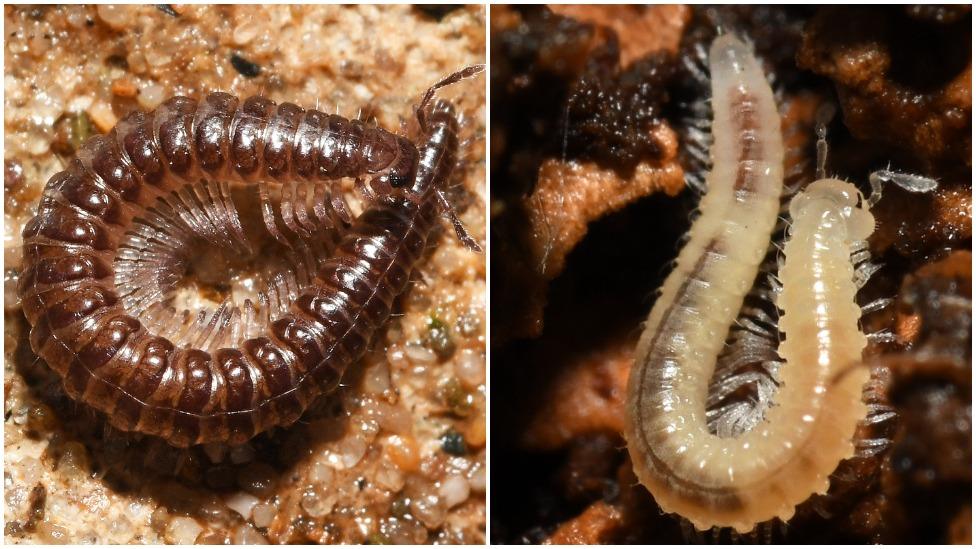
New discoveries include millipedes named Maerdy Monster and Beddau Beast after the areas in which they were found
"You don't have to go to the Amazon to find new species, you can actually just head to your local coal tip," said Liam Olds, an entomologist - or bug expert.
His study over the best part of a decade has identified more than 1,000 invertebrate species living on coal tips in south Wales, with one in five classed as being of "conservation importance".
New discoveries include millipedes named Beddau Beast and Maerdy Monster after the areas in which they were found.
The tips have become such havens for wildlife because they support many different types of habitat in close proximity - from flower-rich meadows and areas of woodland to ponds and patches of bare ground.
A total of 99 tips have officially been designated as sites of special scientific interest (SSSI) and a further 32 registered as special areas of conservation (SAC).
"There are a lot of people, including those making decisions about the future of these sites, that are not fully aware of how important they are," said Mr Olds, from the Colliery Spoil Biodiversity Initiative.
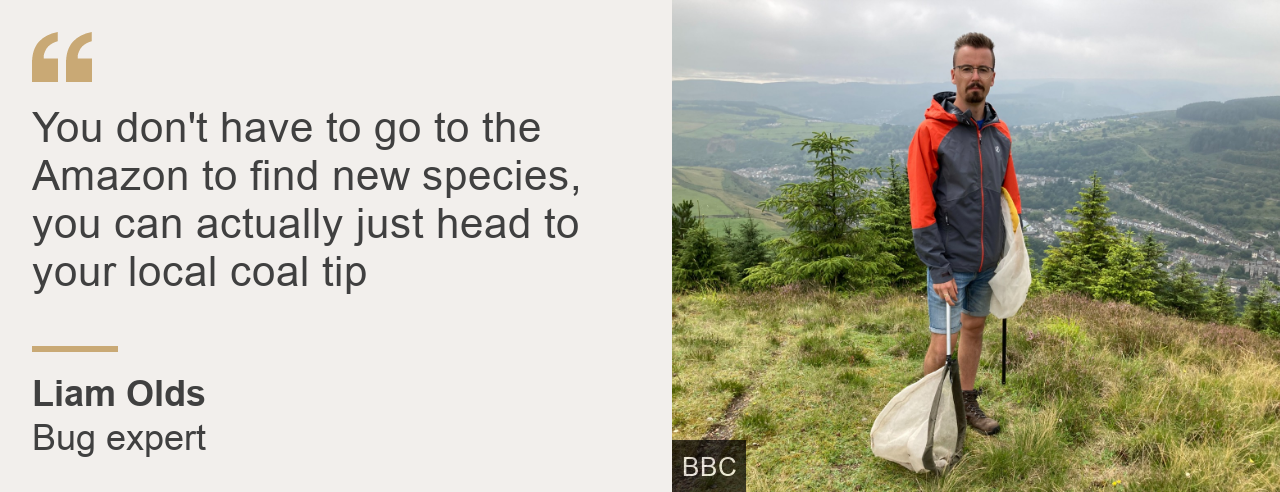
A joint UK and Welsh government taskforce was set up in 2020 to discuss the future of the nation's coal tips.
It came after part of a tip above Tylorstown in the Rhondda valley collapsed during the intense rainfall brought by Storm Dennis that year, with 60,000 tonnes of coal waste sliding down into the river below.
A Coal Tip Safety bill, external has been promised by the Welsh government within the next year of the Senedd, which could see a new supervisory authority set up to manage inspections and re-engineering work.
But Mr Olds said the impact of the proposals on nature had not yet been properly thought through.
Allow Facebook content?
This article contains content provided by Facebook. We ask for your permission before anything is loaded, as they may be using cookies and other technologies. You may want to read Meta’s Facebook cookie policy, external and privacy policy, external before accepting. To view this content choose ‘accept and continue’.

Wildlife groups had "not been consulted", he claimed - calling for "more dialogue between the people making decisions and those of us who really know these sites".
"Public safety has to be at the forefront of our minds but it's essential that any proposed reclamation or remediation works on coal tips considers their significant biodiversity interest," he said.
"There is a genuine risk that if we are not careful, such works could actually contribute towards biodiversity loss during a nature emergency which would be ecologically disastrous."
A separate study suggested each tip harbours a minimum of 350 species of fungi, described as "phenomenal" by mycologist Emma Williams, of the Coal Spoil Fungi project.
She explained that they play a vital role in breaking up toxins, recycling waste and allowing other species to tolerate conditions.
But fungi were "not at the table of conversation" when it came to the major review of coal tips, she claimed.
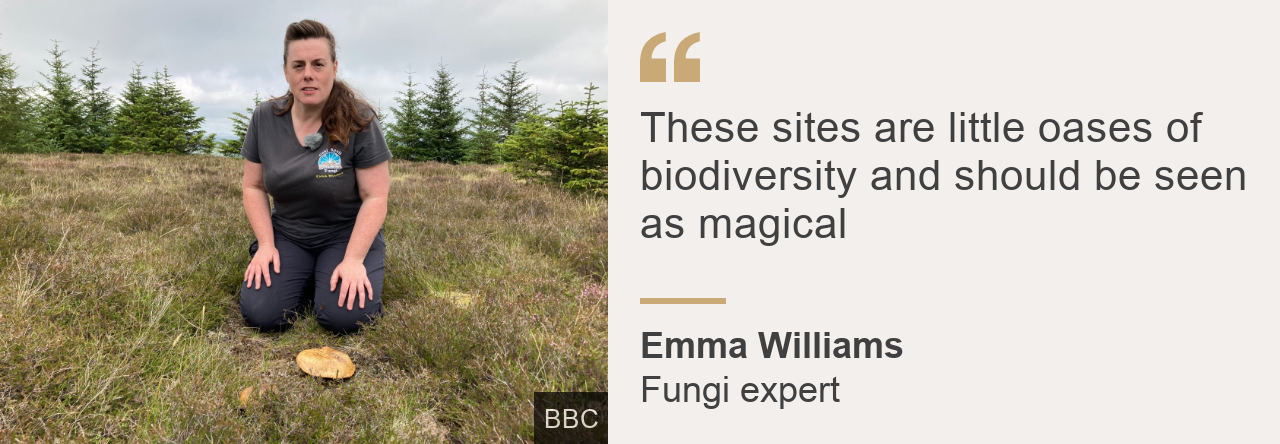
"We need to actually look at what the impact will be, what will we lose when engineering works take place.
"These sites are little oases of biodiversity and should be seen as magical," she said.
Robert Lee, professor of environmental law at University of Birmingham, was asked by the Welsh government to look into its plans to update tip safety legislation.
His research paper, external concluded there was "a difficult balance to be drawn in allowing emergency intervention in relation to coal tips and protecting habitats and species likely to be disturbed by that work".
Prof Lee explained it was "just one example of what will face us in the future as we try to combat and adapt to climate change - it will bring clashes of values".
Wales' coal tips: People living nearby 'worry' when it rains
With 327 tips currently classed as being higher risk, he said "upfront work could be done" to survey and assess sites for importance for biodiversity.
"Where they do pose threats, I think we could go about the task of asking now - if we have to do emergency work - what is it we can do to preserve what we've got."
The Welsh government said it was grateful to Prof Lee "for carrying out this important piece of work for us to better understand the interconnections between tip safety and environmental law".
"In conjunction with the Law Commission's report, external, we are considering these findings as part of our review of tip safety legislation," it added.

PARANORMAL: Chilling ghost stories and words appearing on the walls...
UNMISSABLE DRAMA: When the Wolf is at the door, be very afraid

- Published12 May 2022
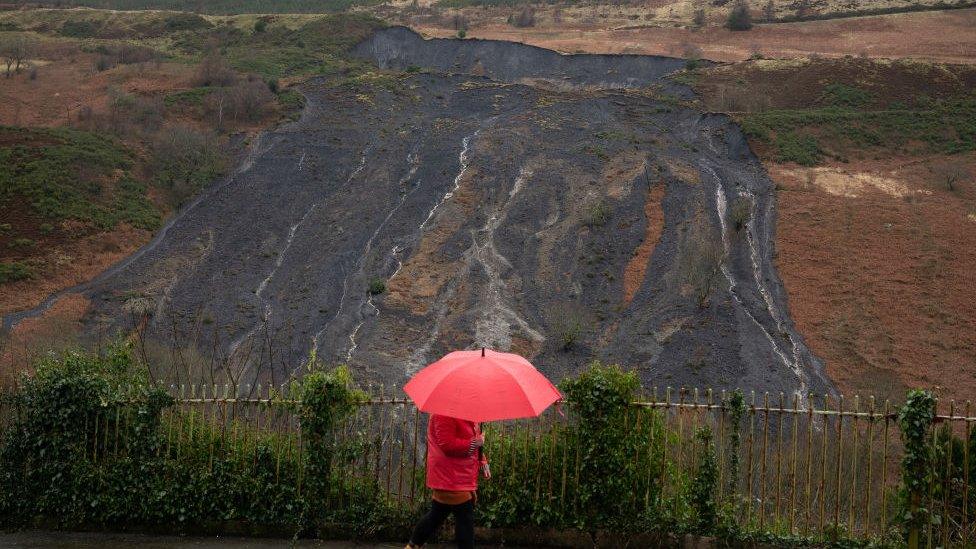
- Published2 January 2022
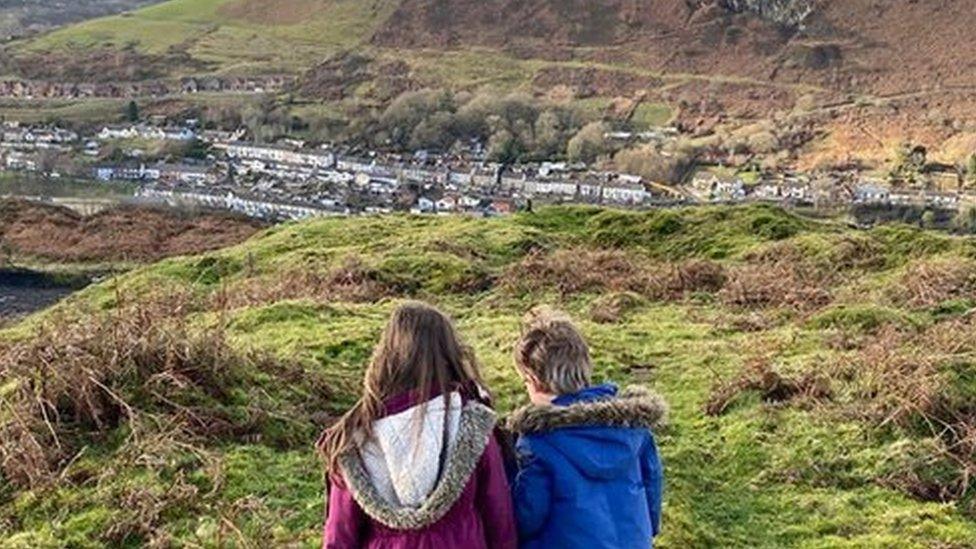
- Published9 October 2021
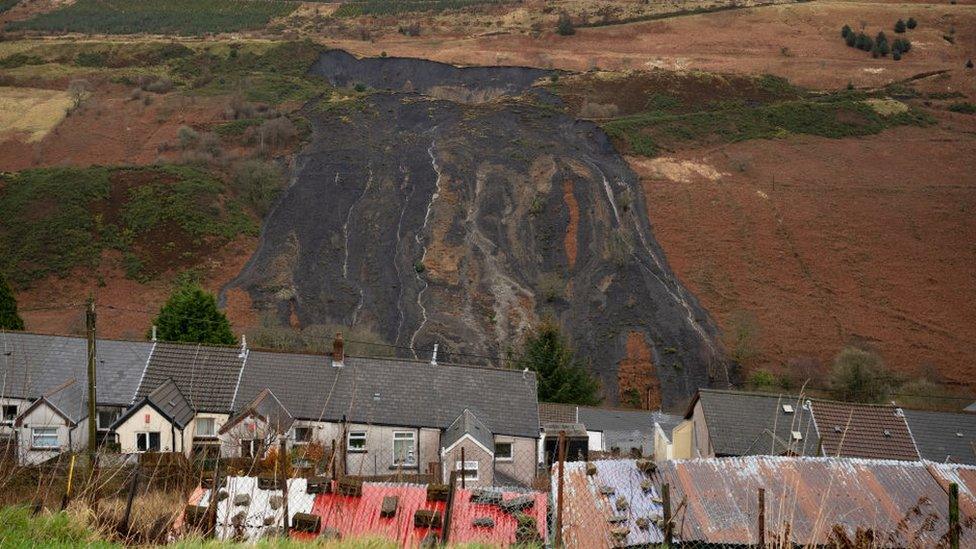
- Published3 November 2021
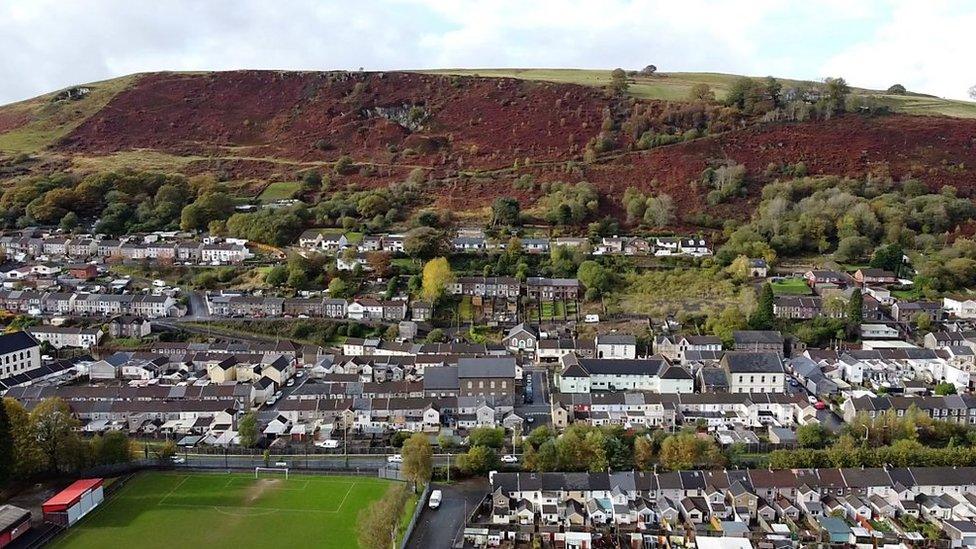
- Published18 February 2020
